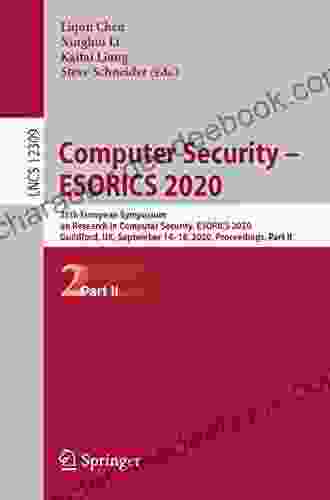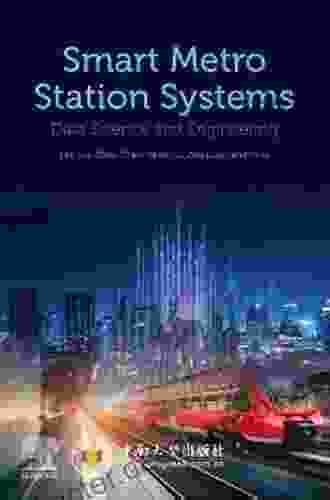Smart Metro Station Systems: Data Science and Engineering for Enhanced Urban Mobility

In the bustling tapestry of modern cities, efficient and reliable urban transportation systems are crucial for economic growth, social cohesion, and environmental sustainability. As cities continue to expand and populations grow, the need for innovative solutions to address the challenges of urban mobility becomes increasingly pressing. Smart metro station systems, powered by data science and engineering, are emerging as a transformative force in this domain. By leveraging data-driven insights and cutting-edge technologies, smart metro stations are revolutionizing the way we commute, enhancing convenience, safety, and efficiency.
Data Science and Engineering in Smart Metro Stations
At the heart of smart metro station systems lies the integration of data science and engineering. Sensors, cameras, and other data collection devices gather real-time information on passenger flow, train schedules, equipment health, and environmental conditions. This vast amount of data is then processed, analyzed, and interpreted using advanced data science techniques to extract meaningful insights and drive intelligent decision-making.
One key application of data science in smart metro stations is predictive analytics. By analyzing historical data on passenger traffic patterns, weather conditions, and special events, data scientists can develop predictive models to forecast future demand and optimize resource allocation. This enables metro operators to adjust train schedules, deploy additional staff, and implement crowd management strategies in anticipation of peak periods or potential disruptions.
4.7 out of 5
| Language | : | English |
| File size | : | 94276 KB |
| Text-to-Speech | : | Enabled |
| Screen Reader | : | Supported |
| Enhanced typesetting | : | Enabled |
| Print length | : | 517 pages |
Enhanced Passenger Experience
Smart metro station systems significantly enhance the passenger experience through a range of data-driven initiatives:
Real-time Information: Digital displays and mobile apps provide passengers with real-time updates on train arrivals, delays, and service disruptions. This empowers commuters with the knowledge they need to plan their journeys efficiently and avoid unexpected delays.
Personalized Navigation: Indoor navigation systems integrate with data from sensors and cameras to guide passengers seamlessly through the station, providing turn-by-turn directions to platforms, exits, and amenities. This eliminates confusion and reduces travel time, especially for first-time visitors or those unfamiliar with the station layout.
Accessibility Enhancements: Smart metro stations employ assistive technologies such as screen readers and tactile guidance systems to improve accessibility for passengers with disabilities. Real-time information on accessibility features and assistance is also available through accessible apps and interfaces.
Improved Safety and Security
Data science and engineering play a vital role in enhancing the safety and security of smart metro station systems:
Surveillance and Monitoring: Advanced surveillance systems, powered by computer vision and artificial intelligence (AI),monitor passenger movements, identify suspicious behavior, and detect potential security threats. This enables rapid response and intervention by security personnel to prevent incidents and ensure the well-being of passengers.
Incident Detection and Management: Sensors and data analytics are used to detect abnormal events such as smoke, fire, or unusual crowd patterns. The system can trigger automated emergency procedures, such as activating fire suppression systems, alerting authorities, and guiding passengers to safe evacuation routes.
Cybersecurity: Smart metro stations rely on robust cybersecurity measures to protect sensitive data and prevent unauthorized access to critical systems. Data encryption, intrusion detection systems, and vulnerability assessments are employed to safeguard against cyber threats and ensure the integrity of operations.
Optimized Operations and Maintenance
Data science and engineering contribute to the optimization of metro station operations and maintenance:
Predictive Maintenance: Sensors and data analytics are used to monitor the condition of equipment, such as escalators, elevators, and electrical systems. Predictive models identify potential issues before they escalate into major failures, enabling proactive maintenance and minimizing service disruptions.
Energy Management: Smart metro stations leverage data on energy consumption to identify areas for improvement and implement energy-efficient measures. This includes optimizing lighting systems, controlling temperature, and recovering energy from braking trains.
Performance Monitoring: Data science techniques are used to evaluate the performance of metro stations in real-time. This enables operators to identify bottlenecks, address congestion, and improve the overall efficiency of the network.
Future Trends in Smart Metro Stations
As technology continues to advance, we can expect to see even more innovative applications of data science and engineering in smart metro station systems. Some emerging trends include:
Hyper-personalized Experiences: Leveraging AI and machine learning, future metro stations will tailor information and services to individual passengers based on their preferences, mobility needs, and loyalty status. This will create a seamless and personalized travel experience.
Autonomous Operations: Advanced AI systems will increasingly automate many aspects of metro station operations, including train control, passenger assistance, and incident response. This will free up human staff to focus on more complex tasks and enhance the overall safety and reliability of the system.
Data-Driven City Planning: The data generated by smart metro station systems will provide valuable insights for urban planners. This data can be used to inform decisions on land use, transportation policies, and the development of sustainable and inclusive cities.
Smart metro station systems, powered by data science and engineering, are transforming urban mobility by enhancing the passenger experience, improving safety and security, and optimizing operations. As technology continues to evolve, these systems will become even more sophisticated, integrating cutting-edge innovations to create a future where metro stations are not just transportation hubs but also hubs of data-driven intelligence and efficiency. By embracing data science and engineering, cities around the world can unlock the full potential of smart metro station systems and shape the future of urban transportation.
4.7 out of 5
| Language | : | English |
| File size | : | 94276 KB |
| Text-to-Speech | : | Enabled |
| Screen Reader | : | Supported |
| Enhanced typesetting | : | Enabled |
| Print length | : | 517 pages |
Do you want to contribute by writing guest posts on this blog?
Please contact us and send us a resume of previous articles that you have written.
 Novel
Novel Text
Text Story
Story Reader
Reader Library
Library Paperback
Paperback Magazine
Magazine Newspaper
Newspaper Paragraph
Paragraph Sentence
Sentence Bookmark
Bookmark Glossary
Glossary Bibliography
Bibliography Foreword
Foreword Preface
Preface Footnote
Footnote Scroll
Scroll Codex
Codex Bestseller
Bestseller Autobiography
Autobiography Memoir
Memoir Encyclopedia
Encyclopedia Thesaurus
Thesaurus Narrator
Narrator Character
Character Librarian
Librarian Card Catalog
Card Catalog Borrowing
Borrowing Stacks
Stacks Scholarly
Scholarly Lending
Lending Reserve
Reserve Journals
Journals Reading Room
Reading Room Special Collections
Special Collections Study Group
Study Group Thesis
Thesis Dissertation
Dissertation Theory
Theory Textbooks
Textbooks Bianca Turetsky
Bianca Turetsky Hilary Bradt
Hilary Bradt R Coxton
R Coxton William Cubberley
William Cubberley Janee Trasler
Janee Trasler Kinder Sule Books
Kinder Sule Books Marie Ferrarella
Marie Ferrarella Rochelle B Weinstein
Rochelle B Weinstein Jennifer Grainger
Jennifer Grainger Pat O Bryan
Pat O Bryan Pat Seawell
Pat Seawell Madeleine Westerhout
Madeleine Westerhout Deborah L Rhode
Deborah L Rhode J K Henry
J K Henry Abhijit Ghatak
Abhijit Ghatak Spencer Quinn
Spencer Quinn Alberto Lamar Schweyer
Alberto Lamar Schweyer Robin Bromby
Robin Bromby Andy Read
Andy Read Mark Winegardner
Mark Winegardner
Light bulbAdvertise smarter! Our strategic ad space ensures maximum exposure. Reserve your spot today!

 Mason PowellMeet Ship Command Amy Shojai: A Trailblazer in Veterinary Medicine, Animal...
Mason PowellMeet Ship Command Amy Shojai: A Trailblazer in Veterinary Medicine, Animal...
 Isaac AsimovReform Bureaucrats and the Japanese Wartime State: Studies of the Weatherhead...
Isaac AsimovReform Bureaucrats and the Japanese Wartime State: Studies of the Weatherhead... Miguel NelsonFollow ·2.4k
Miguel NelsonFollow ·2.4k Lord ByronFollow ·14.8k
Lord ByronFollow ·14.8k Anton FosterFollow ·11.4k
Anton FosterFollow ·11.4k Elias MitchellFollow ·9.1k
Elias MitchellFollow ·9.1k Carter HayesFollow ·18k
Carter HayesFollow ·18k Francisco CoxFollow ·12.6k
Francisco CoxFollow ·12.6k Dakota PowellFollow ·14k
Dakota PowellFollow ·14k Tyler NelsonFollow ·7.9k
Tyler NelsonFollow ·7.9k

 Ronald Simmons
Ronald SimmonsHow Do Cities Work? Let's Read and Find Out!
Cities are...

 Tom Clancy
Tom Clancy25th European Symposium on Research in Computer Security...
<p>Guildford,...

 Lawrence Bell
Lawrence BellHow We Decide: Cognitive Behavior in Organizations and...
Organizations are...

 E.M. Forster
E.M. ForsterOver 60 Little Masterpieces To Stitch And Wear:...
Embark on a Creative...

 Douglas Foster
Douglas FosterUnveiling the Educational Treasure: CGP KS2 Geography:...
In the ever-evolving educational...
4.7 out of 5
| Language | : | English |
| File size | : | 94276 KB |
| Text-to-Speech | : | Enabled |
| Screen Reader | : | Supported |
| Enhanced typesetting | : | Enabled |
| Print length | : | 517 pages |










